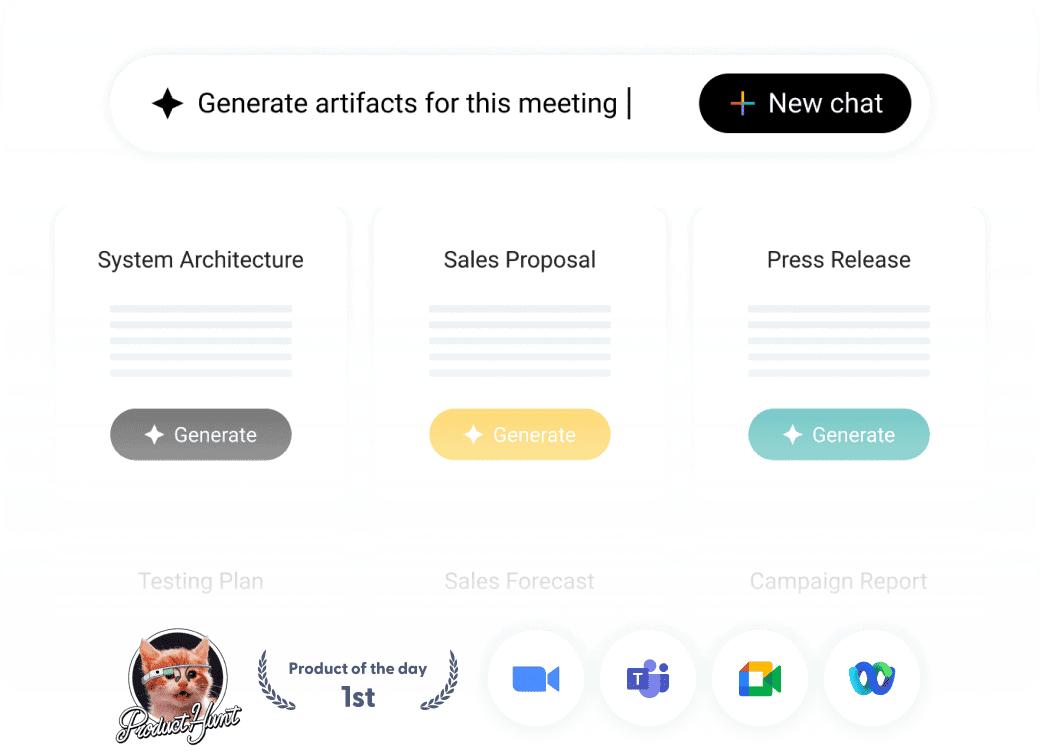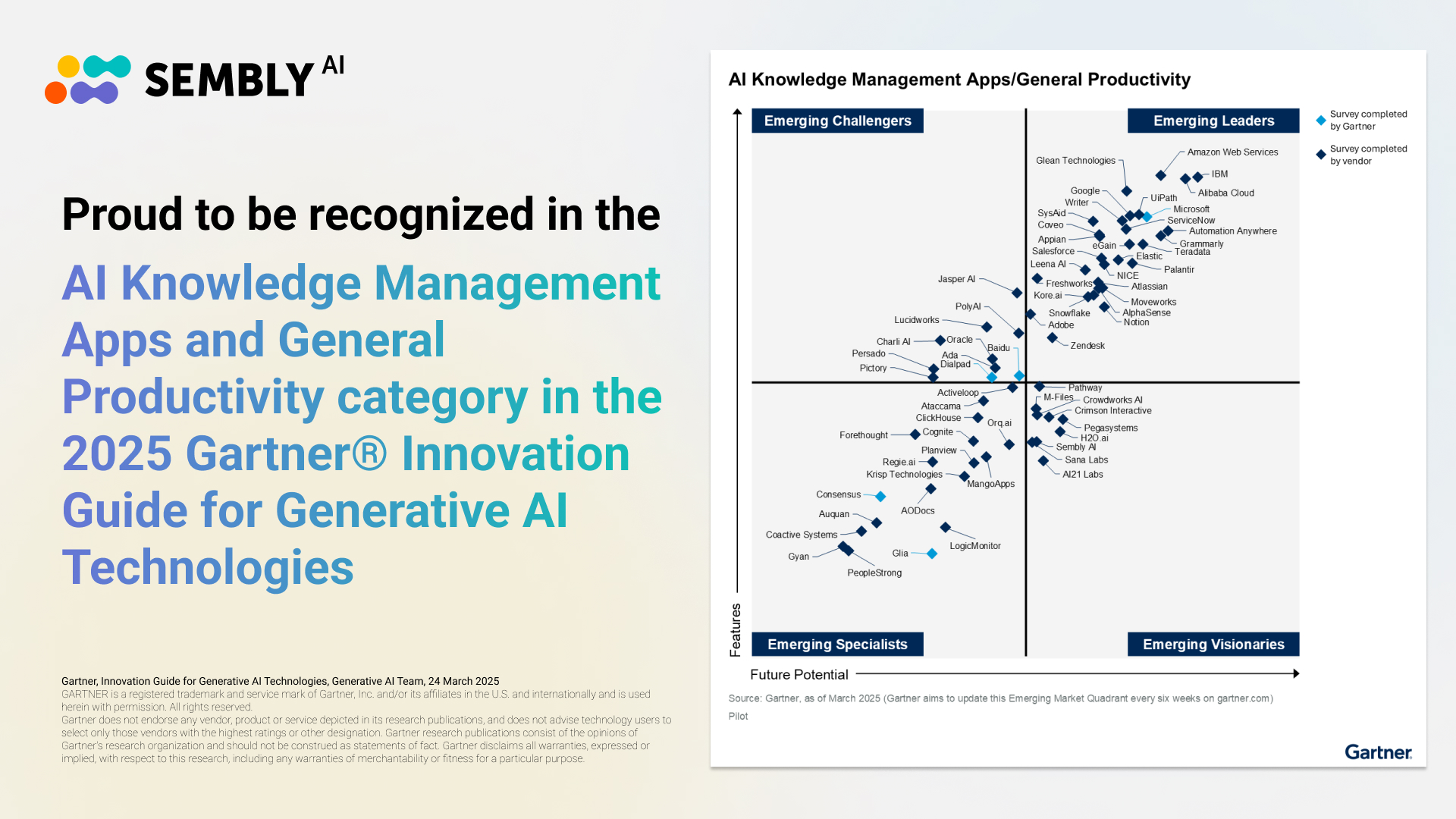Table of Contents
ToggleIn the past, Artificial Intelligence (AI) has only been an idea that was used in sci-fi movies, as of now, however, this idea has become reality and different tech companies, AI-related companies, and industries are using it to accomplish amazing results. Advanced AI technologies are crucial in today’s world as they allow businesses to automate repetitive tasks and offer problem-solving across various industries.
But how do you know which investment will pay off and where you need to invest? This article will present all the essentials that will ensure that your investment in Artificial Intelligence startups is well-considered as well as answers the main question: “How to invest in an AI startup?”.
Why Invest in AI Startups?
Artificial Intelligence is driving innovation and solidifying its position as a transformative force across various industries. In the dynamic startup ecosystem, AI startups present a unique opportunity to invest in cutting-edge solutions designed to address real-world challenges. For investors, this represents a chance to back companies at the forefront of monumental change and potentially achieve significant returns.
The potential of AI as a transformative technology
AI is considered to be the ‘electricity of the 21st century’ due to the plethora of use cases it is capable of enabling. Just think about a technology that would be able to predict natural disasters, diagnose diseases at the earliest stages, or even program on its own.
Startups focused on AI, such as OpenAI, are currently valued at billions of dollars and have shown how quickly a startup in this domain could potentially grow. These companies are disrupting markets in a matter of only a few years, but while AI startups present potential opportunities they also carry significant risks.
But what makes AI different? AI is not just another wave of technology that increases productivity, it has the ability to completely redefine the way the world does work. The great impact of this technology led a lot of experts to the conclusion that the next wave of unicorn startups will be in the AI space.
Benefits of early-stage investments in AI

Investing in an AI startup early allows you to enter a stage where valuations are lower, but the growth potential is exponential. Early investors in companies like DeepMind reaped fantastic returns when the startup was acquired by Google. While risks are significant at such an early stage of a company’s growth, the opportunity to support game-changing technology could be incredibly rewarding.
How to Invest in AI Startups
So, how to invest in an AI startup? And what is the best way to invest in an AI startup? Investing in startups requires a well-thought-out strategy, especially in the rapidly evolving AI sector. Understanding how to invest in AI startups effectively can make the difference between success and missed opportunities.
Key factors to consider before investing
Before committing your funds, evaluate the startup’s mission and the problem it aims to solve. Is the solution unique? Does the company target a growing market? Beyond the idea, consider the execution — how will the startup bring its vision to life?
For example, a healthcare AI startup developing a tool for early cancer detection may have enormous potential, but without regulatory approvals or robust testing, the risks increase significantly.
Understanding the risks and rewards
Startups operate in an uncertain environment. Data shows that while a small percentage of startups deliver exponential returns, the majority fail within their first few years. Yet, for those who invested early in AI ventures like UiPath or Grammarly, the rewards have been transformative. Startups, especially those in the rapidly transforming environment of AI technology, are in a particularly high risk category of investment. It is certainly not an appropriate asset class for every investor, and carries the possibility of total loss of capital. Balancing potential returns with calculated risks is key to making wise and informed investment decisions.
Common entry points for startup investors

How to invest in an Artificial Intelligence startup? Investors have more pathways than ever to enter the AI startup market.
Angel investing
In simple terms, angel investing is when individuals provide capital to startups in their early stage and in exchange they receive equity or convertible debt. Such an investing method is optimal for investors who are eager to support innovative ideas before they actually become mainstream. However, the risks are higher but so are the potential returns.
AngelList and FundersClub are helpful online tools that can help with the process of finding and evaluating AI startups for angel investors. They provide a curated list of investment opportunities as well as detailed insights into startups’ growth potential, and useful tools to track investments. Also, for first-time angel investors, they provide guidance on due diligence as well as risk assessment.
Pros:
- Get in at the earliest stage of startup growth, potentially capturing opportunity for very high returns
- Get to know the founding team very well, potentially establish a personal relationship with them
- Opportunity to play an active role as a mentor or an advisor to the startup for which you are an angel investor
Cons:
- Presents the highest risk of total capital loss as most startups open to angel investment are pre-revenue and many are also pre-product
- Minimal investment can be $50,000 or more.
- Qualifying to become an angel may be difficult
Becoming a Limited Partners (LP) in venture capital (VC) funds
In a nutshell, limited partners contribute to venture capital funds that are managed by expert investors who allocate the funds to promising startups. By becoming an LP, you get the ability to indirectly invest in multiple startups, thus diversifying your portfolio while also getting the technical expertise of professional venture capitalists.
Online platforms like StartEngine give opportunities for investors to both explore and join VC funds (including the AI sector). Overall, it provides transparency in investment options, detailed insights into potential returns as well as direct access to fund managers.
Pros:
- Invest in startups vetted by professional venture capital investment teams
- Diversified portfolio of investments reduces overall risk of the portfolio, although it does not eliminate risk
- Least labor intensive, the VC fund does all the leg-work after you contribute capital
Cons:
- It could be difficult to find VC funds who are open to new LPs
- Qualifying to be a VC fund LP is a rigorous process
- Minimal investment amount could be very high, at $1M or more.
- VC funds take management and success fees, which impact the returns on your investment
- No influence on operational activities of the companies in your portfolio
Regulation Crowdfunding (Reg-CF)
Regulation Crowdfunding (Reg CF) allows eligible investors to participate in startup fundraising with lower minimum investments. This method carries risks, including the potential for total capital loss. Sembly AI is conducting a Reg CF raise, and details can be found on StartEngine.
Crowdfunding platforms like StartEngine provide access to startups focused on advanced technologies, including AI. Investors should carefully evaluate each opportunity, as all investments carry risks. Such platforms conduct due diligence on companies and thus streamline potential deals in line with investor’s appetite in terms of risk and returns.
Pros:
- Almost anyone can invest in a startup via crowdfunding
- Minimum investment amounts vary. Please refer to our official StartEngine campaign page for details.
- Vetting process to become a Reg-CF investor is much simpler compared to the VC fund LP path
- A variety of companies at different stages are looking for Reg-CF investment, so you can choose the level of maturity, sector, etc that suits your investment criteria
Cons
- The best investments can be competitive and the round can “fill up” before you have an opportunity to act
- Typically no influence on operational activities of the companies in your Reg-CF portfolio
- Vetting of the investment rests fully with you while you have limited, if any, access to the founding team of the startup and there are no professionals vetting the asset beyond Reg-CF regulation requirements as is the case with VC funds
Evaluating AI Startups: What to Look For

Not all AI startups are the same and this goes for their worth, their flaws, and their strengths. For this reason, it is necessary to delve into the scope of the market and business ideas alongside the founders and the technology, prior to agreeing to invest in the seed of the startup. This qualitative analysis is what allows you to have the confidence that you are supporting the right startups with the exponents for growth and expansion.
Assessing the startup’s value proposition
Absolutely any startup must begin with a well-defined and weighty problem to be solved. Thus, AI startups need to build AI-based products that utilize Artificial Intelligence in such a way that it provides tangible results.
Take a moment and ponder upon it: is the product aimed at addressing a specific problem or gap? Is there a business opportunity here, or is it too much of an overshoot? Having a strong value proposition helps not only to guarantee demand but also facilitates continuous growth.
Understanding the technology and its scalability
AI is often surrounded by hype, making it crucial to dig into the actual technology behind a startup’s offering. Is the AI model proprietary, or is it leveraging pre-existing frameworks without significant innovation? A startup’s ability to scale its technology is another vital consideration. For instance, an AI model trained on a small dataset may perform well initially but fail when applied to broader markets or larger datasets.
Scalability also extends to the infrastructure supporting the technology. Does the startup have a roadmap for handling increased demand, and is its technology adaptable to emerging trends or regulations? Startups that fail to plan for scale often encounter roadblocks as they grow.
The importance of the founding team and expertise
Behind every successful startup is a team that brings vision, expertise, and execution capability. The founding team’s background can provide valuable insight into the startup’s potential. Are the founders industry veterans or technologists with proven track records? Have they successfully navigated challenges in their previous ventures?
A strong team isn’t just about technical skills — it’s also about leadership and adaptability. Startups operating in the fast-evolving AI landscape need leaders who can pivot quickly, build partnerships, and attract top talent. Investors should also evaluate the advisory board, as experienced mentors can provide strategic direction and credibility.
Reviewing market positioning and competition

Even groundbreaking technology can fail if the startup cannot differentiate itself in a competitive market. Assess how the startup positions itself against competitors. Is it focused on a specific niche market or rather competing vigorously without any specific advantage in a crowded marketplace?
Think about whether the startup is a pioneer in its field or has a strong intellectual property (IP) that differentiates it in some key way. A strong understanding of the competitive landscape, coupled with a clear strategy for capturing market share, is a strong indicator of success. Seek out startups that have previously tested their product that minimizes the chances of loss incurred on your part.
Types of AI Startups to Invest In
AI exists in many sectors, each of which offers unique potential to be exploited and innovated. With the identification of sectors where AI has been most significantly applied, investors can make a strategic selection of startups that align with their interests and objectives.
Below are some highly promising sectors to consider:
Healthcare
The realm of healthcare and healthcare companies are benefiting from the integration of AI greatly as the new algorithms used by startups are improving diagnostics, treatment plans as well as patient issues. For instance, advanced imaging tools have now been developed, which are able to find diseases such as cancers more accurately and faster than older techniques.
Another field that is emerging is medicine which can be tailored to the patient, as here genetics and lifestyle data are analyzed with the help of AI to determine the ideal treatment for an individual. The AI healthcare-focused startups are not only improving the healthcare for the patients but they are also cutting down the costs for the healthcare providers.
Fintech
In the finance sector, AI is transforming the ways in which businesses detect fraudulent processes, measure credit risks as well as enhance customer processes. This space includes startups that are making it possible to routinely analyze large amounts of data in real time to catch suspicious transactions and save businesses their money.
In addition, AI-powered platforms are already customizing banking services by studying user habits and recommending things like savings accounts or private investment portfolios, and many more. This is the new level of customization that will change the way consumers engage with financial services companies and this is why investing in an AI startup within Fintech is a good idea.
Sustainability
AI startups with a sustainable focus are gaining popularity, especially with the global focus directed toward climate change. Such companies optimally manage and have optimal allocation of resources, model reductions in carbon footprints, and engineer systems for efficient use of renewable energy technologies.
An example of this is AI’s ability to study weather cycles for maximized efficiency of wind farms or predicting rainfall in non-drought areas to avoid shortages. Startups that seek to find unique solutions to environmentally pertinent issues like climate change are not only doing their bit to protect nature but are tapping into an expanding market that has both governmental and corporate support.
Conducting Due Diligence on AI Startups

Before you invest in AI startup opportunities, a deep dive into the company’s financials, technology, and market strategy is essential. Ask questions about their runway, revenue streams, and intellectual property. Due diligence not only reduces risk but also ensures your investment aligns with your goals.
Risks and Challenges of Investing in AI Startups
Investing in AI startups potentially yields high returns, but it is important to understand that it is quite a risky business. There are some hurdles that AI Startups need to overcome in order to succeed which can hinder them from growing at the desired rate. For any investor, knowing the risks involved is a necessity.
Below are some of the primary challenges to consider:
High failure rate of startups
Traditionally, the business of startups, and especially the AI business is risk-laden. Even with revolutionary concepts, most businesses fail to survive due to not having adequate resources or a contractor to improve the product. Moreover, statistics illustrate that a whopping 90% of startups fail, with a significant proportion of entrepreneurs closing their businesses within the first five years.
It is important to keep in mind how AI startups differ from the others, as these businesses possess longer development cycles of AI-powered products, which result in higher developmental costs, and require massive operational support and a team of experienced and highly skilled individuals.
Regulatory and ethical challenges in AI
AI startups, especially when they work in sensitive sectors like healthcare, finance, and security, have a lot on their plate. Navigating through the regulations surrounding data and data privacy laws such as CCPA and GDPR is no simple task. For a startup, it provides an opportunity for control and growth but at the same time may bring them down with lots of hurdles.
Apart from this, the issues of AI bias and fairness can have a negative impact on the image of a startup and slow acceptance of its product. AI models that are built on biased datasets, for instance, may contribute to discrimination in hiring, lending, or even in making medical decisions, which may cause public anger and legal challenges. Investors must confirm that the startup has a proper strategy regarding regulatory issues and ethical AI in order to minimize these risks.
Market volatility and scalability concerns
AI is one of the highest growth areas in the tech industry and it has many advantages alongside the risks involved. The cutting-edge technology that is a wonder today can now look outdated in a couple of years and not worth investing in an AI technology startup due to rapid change or development in most industries.
Another worry is scalability. Startups that are unable to improve their technology to suit new demands or growing use cases risk going out of the market completely. Also, other dynamics such as economic downturns, changes in consumer preferences, and geopolitical tensions worsen the volatility in the market.
Success Stories of AI Startup Investments
The parallels between the 1990s internet boom and today’s AI revolution are striking. Just as the early days of the internet gave rise to transformative tech giants like Amazon, Google, and Facebook, the AI boom is producing its own generation of industry-defining startups. Investing in AI startups at their early stages has already proven to yield substantial returns, with some companies growing exponentially in value over just a few years.
While some AI companies have seen success, investing in startups carries significant risks, including potential loss of capital. Success is never guaranteed, and past performance does not indicate future results.
OpenAI

OpenAI, the creator of ChatGPT, is a prime example of how early investment in AI startups can pay off. Founded in 2015, OpenAI initially attracted attention for its research into advanced machine learning. Within a few years, it launched products that have fundamentally changed how businesses and individuals interact with AI.
OpenAI’s GPT-3 and GPT-4 models, now widely used across industries, showcase how a focused vision and groundbreaking technology can redefine entire markets. Investors who supported OpenAI early now see the company valued at tens of billions of dollars.
DeepMind

DeepMind, acquired by Google in 2014 for approximately $500 million, represents another stellar success story. Focused on solving complex problems through AI, DeepMind made headlines with its AlphaGo project, which defeated a world champion Go player — a feat previously thought to be decades away. The technology behind AlphaGo has since been applied to other industries, such as healthcare and energy, driving immense value for Google and its parent company, Alphabet.
Start Your AI Startup Investment Journey with Sembly
Sembly AI is a cutting-edge platform that transforms the way teams work by using advanced AI technology to streamline meetings, generate actionable insights, and automate workflows. With its proprietary meeting engine and augmented worker intelligence (AWI) capabilities, Sembly helps businesses worldwide turn meetings into meaningful results without disrupting workflows. It is already trusted by 1,000+ companies across 100+ countries, processing over a million meetings and serving teams in 48+ languages.
Sembly AI is currently conducting a Reg CF raise. Full investment details are available on our StartEngine campaign page: https://www.startengine.com/offering/semblyai. Please review all offering documents before investing.
Investing in startups involves significant risks, including loss of capital. Past performance is not indicative of future results. This communication is for informational purposes only and does not constitute an offer to buy or sell securities. All investment decisions should be made through the official campaign page on StartEngine. Please review all offering documents before investing.
Frequently Asked Questions (FAQ)
What are the best platforms to find AI startups?
Platforms like StartEngine provide access to promising startups, making it easier to begin your journey into investing in AI startup opportunities. These platforms also offer resources and tools to help investors make informed decisions.
How much capital do I need to invest in an Artificial Intelligence startup?
Minimum investment amounts vary but can start as low as $100 on crowdfunding platforms. This makes investing in an AI technology startup accessible to a wide range of individuals, regardless of their financial background.
What industries are most promising for AI startups?
Healthcare, finance, and environmental sustainability are leading sectors for investing in AI startup ventures. These industries are leveraging AI to address critical challenges and unlock new growth opportunities, making them attractive for forward-thinking investors.
Introducing Semblian 2.0
- ✦ Multi-Meeting Chats
- ✦ AI Insights
- ✦ AI Artifacts











